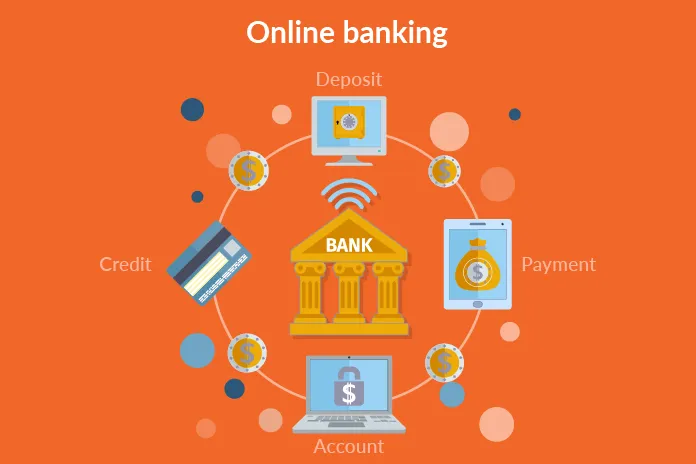Since they can speed up, simplify, and safeguard transactions, online is becoming more and more popular. In fact, the proportion of Pakistanis who are fully committed to handling their finances in this manner is still rising.
There are several benefits to online banking, regardless of whether you belong to that group or use the website or app of your traditional bank. Like with any financial services, there are drawbacks to take into account. Examine this crucial aspect of your personal finances in more detail so that you can determine which banking style is ideal for you.
Online banking: What Is It?
Online banking has two components. In addition to digital banking, the majority of traditional retail banks allow customers to do business at a branch. They offer online banking so you don’t have to visit a branch to do your banking. For example, you may deposit a check using your smartphone or move money to another bank account.
However, the phrase “online banking” is frequently used to describe the distinction between traditional and online-only banking, which entails managing all of your personal accounts online. Online banks may usually provide customers with better annual percentage yields (APYs) on deposit accounts along with other benefits because they don’t have physical facilities and so have lesser overhead.
Pros of Online Banking
Go over these benefits to gain a better understanding of online banking:
- Reduced Fees and Increasing Interest Rates: As previously noted, banks that primarily operate online typically provide greater interest rates on checking and savings accounts. Furthermore, certain institutions might provide reduced or no costs. You may be able to avoid bank costs, like account maintenance fees, by keeping your cash stashed at one of these institutions.
- Absence of a Minimum Balance: There are still several traditional banks that impose a monthly fee if you don’t keep up a minimum balance. You might be surprised at how little money you actually need to start and maintain an internet account. You won’t incur fees on your bill even if you have a balance of just a few dollars with a lot of digital banking institutions.
- Easy accessibility: Since online banks are accessible seven days a week, twenty-four hours a day, you can handle transactions outside of regular business hours. You have access to your finances anywhere and at any time.
- ATM Utilization: The majority of online banks are connected to an online ATM network like Allpoint or MoneyPass. Furthermore, utilizing these ATMs usually doesn’t cost anything. The banking institution will usually offer to reimburse ATM fees up to a predetermined amount of withdrawals if it is not partnered with an ATM network.
- Improved Internet Presence: Web-only banks might offer a superior web or app user experience because they are digital innovators. You can anticipate receiving the newest tools along with access to an abundance of features including dashboards that assist in tracking your income, expenses, and savings, or round-up savings programs.
Cons of Online Banking
There are a few possible drawbacks to this kind of money management. Think about these possible problems with internet banking:
- No Help in Person: Although the majority of internet banks include chat rooms or customer support lines, personal bankers are not typically offered by them. This indicates that no one is in person available to assist you with any of your banking needs, including account setup, loan applications, and notarizing documents. Should you possess a strong desire for and value this kind of one-on-one interaction, digital banking might not be the best option for you.
- Restricted Services: You might not be able to use an online-only bank for some services. It might or might not provide mortgages, auto loans, and credit cards; you might not be able to deposit money simply, just like at a physical bank branch. Since each online bank is unique, find out what services they provide by doing some research.
- Restricted access to ATMs: While tens of thousands of ATMs are available for consumers to access through the network of many online banks, some may provide less comprehensive options than traditional retail banks. Before registering, it’s a good idea to find out exactly which digital banks have affiliated ATMs close to your typical hangouts, such as your house and workplace.
The Conclusion
Keeping your money with an online-only bank can have several benefits, regardless of the term you choose—online, mobile, or digital banking. For example, you should expect to pay less in fees and receive a greater interest rate.
However, people who prefer in-person banking at a branch may decide to continue working with a conventional bank. Consider carefully what best fits your needs and financial style. JS Bank’s smooth internet banking will make you reconsider traditional banking options.



